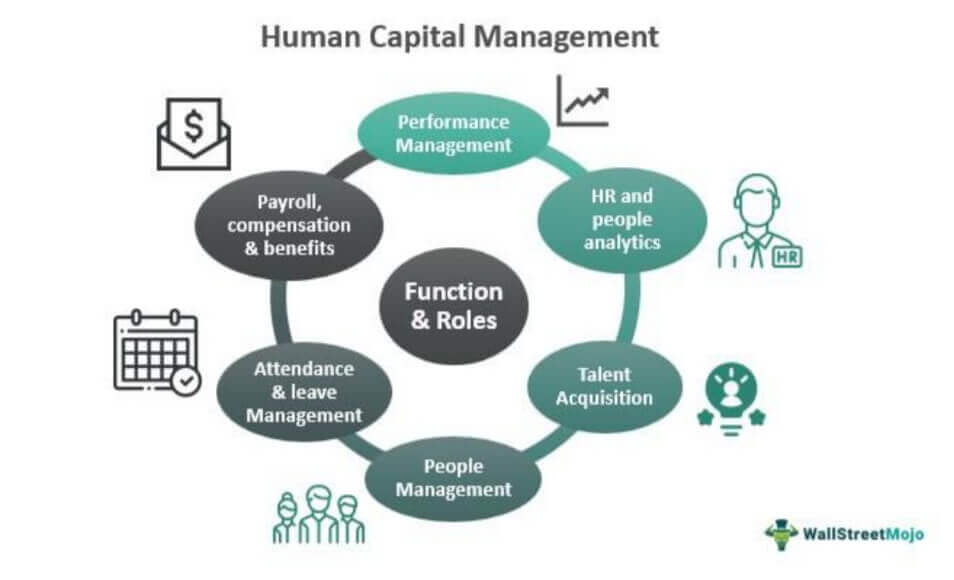Human capital management (HCM) is developing and managing a company’s workforce. It can be achieved with a variety of tools and strategies.
Some elements of human capital management are a centralized software solution for employee recruitment, performance management, training, and data analytics. This can improve the business’s bottom line by reducing hiring and training costs.
Recruiting
Recruiting and hiring people for the right jobs is crucial to any organization. HR managers spend much time and money sourcing candidates, screening resumes, interviewing, appraising, and making hiring decisions. Hiring the wrong employee can cost a company significantly in terms of lost productivity, training costs, and a bad reputation in the marketplace.
It is also important for HR to ensure that the new hire will be a good fit with the company culture. Companies often focus on skills and experience and hire someone regardless of whether they would be a good cultural match. This can lead to high turnover and costly employee replacements.
One of the best ways to reduce this risk is to partner with an RPO (Recruitment Process Outsourcing) firm, which can save companies significant time and money by handling the entire recruitment process. This will allow organizations to focus on identifying the right candidate for the job and building a strong employer brand. Companies can attract top talent to help increase performance and profitability.
Training
HCM includes ongoing training and development for the right people for your business. Training and development help increase employee productivity, ensure that projects are done correctly and on time, and promote new ideas. It’s also important for employee retention. Companies that offer ongoing training and development have a lower turnover rate than those that don’t.
Training must align with current workplace trends, support your company’s goals, and be delivered in a way that supports digital shifts in the work environment. Employees want to work for organizations that value them and give them opportunities to grow, especially in leadership roles.
Human resources departments must remember that people-related costs are the single largest expense for most businesses. That’s why it is so important for HR to stay in touch with the company’s strategic objectives and goals and to be able to respond quickly to changes in the workforce.
Performance
A company is only as good as its people from the top down, which is why human capital management (HCM) is so important. The HR department typically oversees it and encompasses workforce acquisition, management, optimization, employee training and development, and data analytics.
Performance management is another pivotal aspect of HCM, and it involves setting clear expectations and goals, regular feedback and coaching, and performance evaluation to drive continual improvement. This is important because it helps your employees feel valued and motivated to do their best work, which will improve productivity and overall business performance.
It’s also a good idea to provide employees with opportunities for professional growth through mentorship programs, courses, and other developmental initiatives. This will help your employees build their careers and grow with your company, which is a great way to retain them. Employees will also be more satisfied with their jobs when they feel they have a future at the organization. That’s why it’s essential to communicate clearly with your employees about upcoming changes or new initiatives and to offer outplacement services for those whose positions are affected by budget cuts or other reorganization efforts.
Retention
When employees leave the company, it costs much more than just the salary they left on the table. Replacing them requires time in recruiting, interviewing, and training new hires. Studies show that turnover costs companies one-half to twice an employee’s annual salary.
When you focus on retention, it’s possible to minimize vacancy rates, which saves you money on hiring and training expenses. In addition, retaining experienced employees helps you avoid losing important institutional knowledge and expertise.
Employees who have worked with your company for a long time likely have a more positive opinion of the organization, making it easier to keep them happy and engaged. The most loyal and engaged employees are also more productive, which benefits your company.
Engagement
A successful human capital management strategy is focused on ensuring your team is happy, healthy, and connected to your organization’s mission. Employees who feel engaged are motivated and willing to work harder, creating a high-performance environment. This can help you achieve your strategic goals and objectives, such as increasing sales or profitability.
An engaged workforce can also save you money and resources in the long run by reducing turnover and the associated costs of training new employees. In addition, engaged employees are more committed to your company’s success, meaning they are less likely to seek other job opportunities.
Employee engagement can be improved through various initiatives, including training programs, employee recognition, and wellness programs. However, many of these efforts are not as effective as focusing on the factors that drive engagement:
- An employee’s relationship with their manager
- Satisfaction with their role and company
- Overall happiness in the workplace
Gallup’s research found that a positive connection between an employee and their manager accounts for 70% of the differences in engagement levels.

